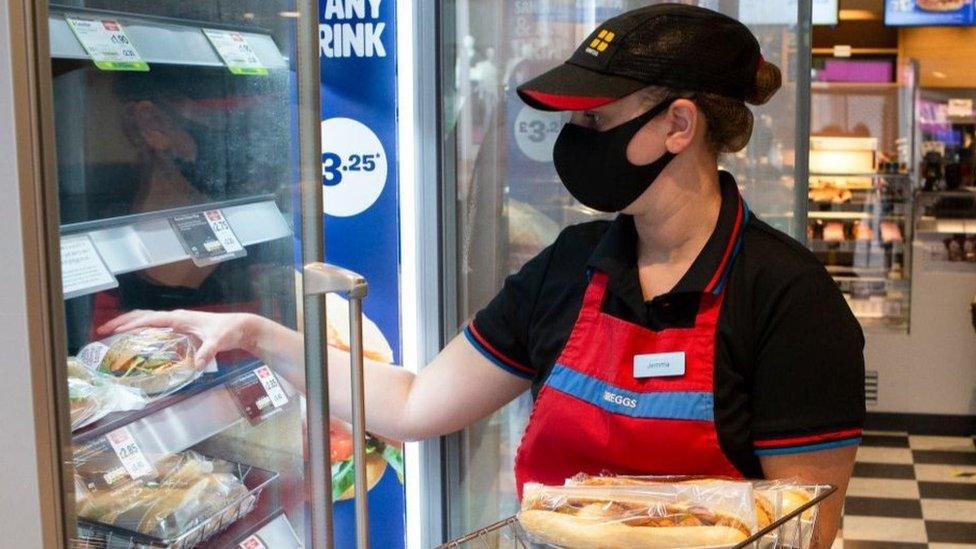Business and government trade blows in blame game
- Published
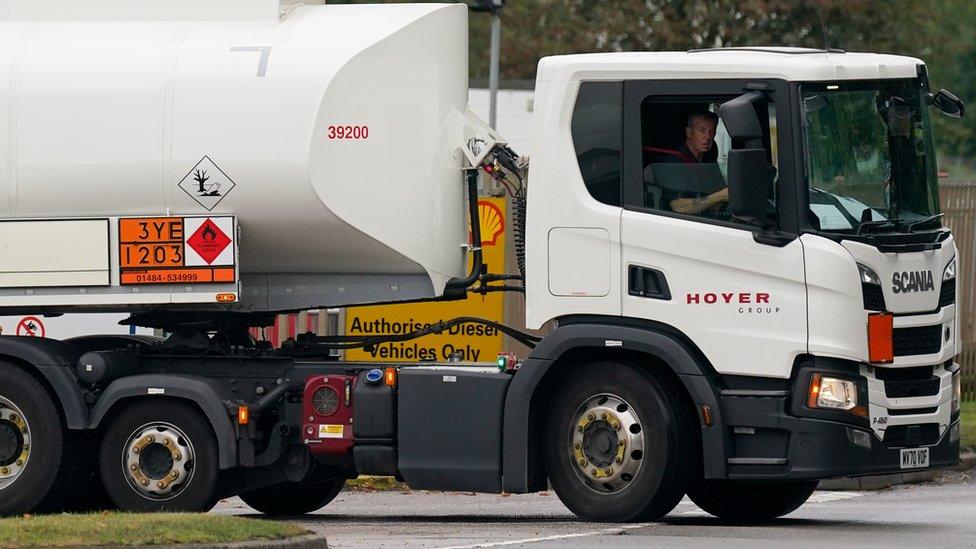
Business is to blame for failing to wean itself off a supply of EU workers that was prepared to put up with the poor wages and working conditions that were a result of years of under-investment by industry. If there are problems that is because of the failures of business and markets - not the state.
The government is to blame for leaving details of the Brexit deal unresolved till the very last minute and expecting business to cope with those sudden changes at the same time as a pandemic - which left businesses struggling to stay afloat, let alone invest in new people and processes - is naïve, inflexible and unhelpful.
Those are the rough battle lines between business and government at this week's Conservative Party conference. The prime minister told the BBC he did not want to return to an economic model that was rejected by voters in 2016 and 2019.
"Some people who have been writing to me may be worried about this, but I'm not worried about this because, actually, I think it will be good for their businesses to invest in people and to invest in capital"
One business leader said we shouldn't forget the timing and the venue of his comments.
"Look, it's party conference time, the government is under pressure and it knows it will be seeing these problems and shortages for months so it has to have a story.
"The story is recovery and the inevitable pains of a changing economy. But dismissing it as all the fault of business won't help everyone get round a table and look for a practical transition plan."
On Monday, pro-Brexit Next boss Lord Wolfson warned the government was ignoring real problems of labour shortages.
Writing in London's Evening Standard newspaper, external, he said: "Whitehall must be under no illusion: labour shortages are a real problem.
"The dearth of HGV drivers is just a very visible example of a chronic problem affecting thousands of restaurants, care homes, small businesses, hospitals, fruit farms, warehouses and more, along with all manner of seasonal work."
He went on to suggest a system whereby industry would pay a 7% levy on salaries of foreign workers, which would provide a meaningful incentive for firms to train UK staff while allowing industry to determine when and where the shortages were severe enough to bring people in - rather than relying on kneejerk guesswork from government officials.
The prime minister rejected this plan on the BBC's Today programme as allowing potentially unlimited immigration which "was not the way forward".
The government and business do agree on one thing. The so-called "superdeduction" announced in the Budget allows firms to reclaim more in tax breaks than the amount they invest. This, say most businesses, is a very good move which will encourage them to invest in the kind of equipment, facilities and processes the prime minister is talking about.
However, its impact was offset by two things. A £6bn rise in employers' national insurance contributions and, perhaps more importantly, insufficient time for new investments to deliver productivity returns.
That is the main complaint from business - you are asking too much too soon and refusing to acknowledge otherwise is going to make a very difficult winter worse.
There is hope in some quarters that once the platform speeches are over, a more pragmatic approach might take hold - with Steve Barclay at the Cabinet Office being identified as a key figure in bringing the two sides together.
This week, business and the government seem just as wary and distrustful of each other as they have been for years.
Whoever's fault it is, a winter of potential food and fuel shortages, price rises in shops, and ballooning gas bills for consumers and businesses is everyone's problem.
Related topics
- Published5 October 2021
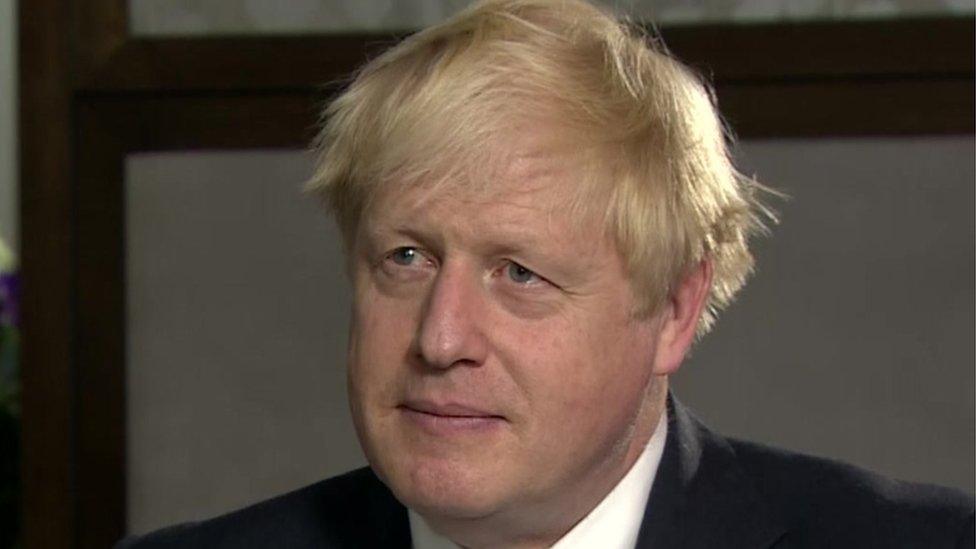
- Published4 October 2021
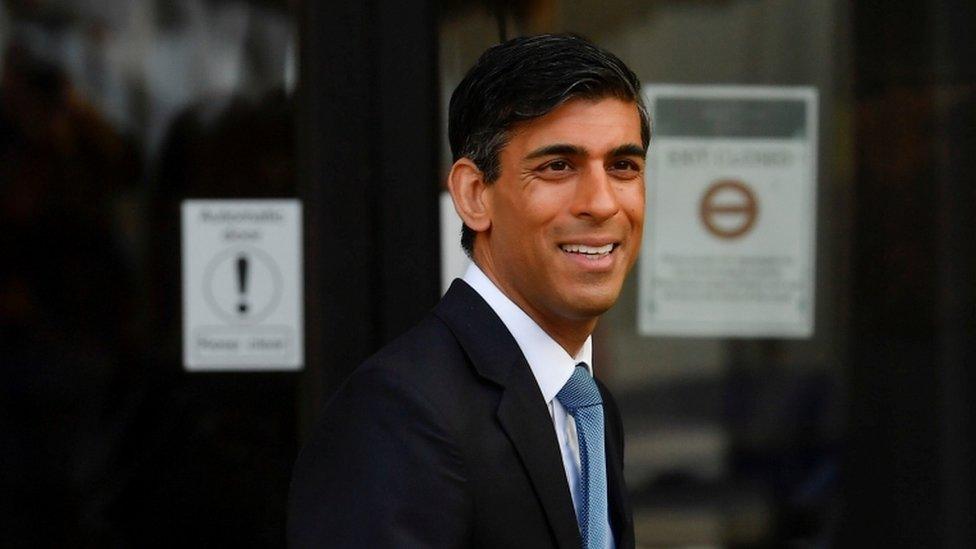
- Published5 October 2021
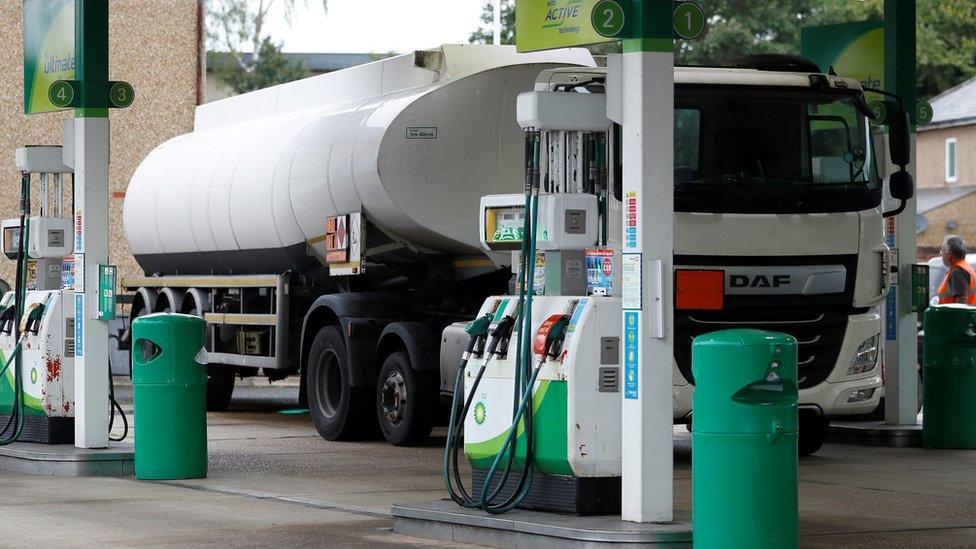
- Published5 October 2021
